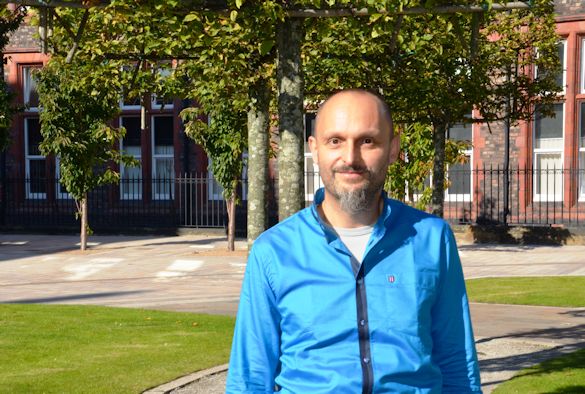
Professor Bruno Merk has taken up his post as Chair of Nuclear Computing at the University’s School of Engineering.
Professor Merk joins Liverpool from the Institute of Resource Ecology at Helmholtz-Zentrum Dresden-Rossendorf in Germany.
His research interests include: Modern calculation methods for reactor physics and reactor safety; advanced computational modelling for fuel management in existing light water reactors; reactor physics; safety considerations for innovative reactor concepts and transmutation of transuranium elements as an alternative to direct final disposal of nuclear waste with a special focus on the burning of Plutonium.
The Chair is supported jointly by the National Nuclear Laboratory (NNL) and the Royal Academy of Engineering (RAEng).
Professor Eann Patterson, University lead for nuclear science and engineering research, said: “We are delighted to welcome Professor Merk and look forward to working with him on new and innovative developments in Nuclear Computing.
“The research we are doing in collaboration with NNL and the RAEng is at the cutting edge of Nuclear Engineering and we hope to develop groundbreaking techniques for reactors safety and nuclear materials handling that will benefit the whole industry.”
Richard J Taylor, from the National Nuclear Laboratory, said: “Professor Merk will share his time equally between the University and NNL. We believe this will provide a unique opportunity to promote collaborative research between our organisations and we wish him every success with his appointment”.
Professor Dame Ann Dowling DBE FREng FRS, President of the Royal Academy of Engineering, said: “Our Research Chairs enable university research and industry development to come together in an important partnership.
“Professor Merk’s post at the University of Liverpool, in collaboration with the National Nuclear Laboratories, means he can carry out world-leading research that will also make a real practical difference to the nuclear energy industry from which the country will benefit.
“Partnerships such as this mean the UK remains a thriving hub for research and innovation, and it’s important we continue to invest together in these schemes.”
The University and National Nuclear Laboratory (NNL) committed to a strategic partnership in 2014 aimed at developing international research on nuclear power generation.
The partnership provides staff and students access to NNL’s Central Laboratory at Sellafield where they can perform experiments on radioactive material.
It also focuses on work across engineering; environmental sciences; electrical engineering; electronics; computer sciences; and physical sciences.
The University also has a Memorandum of Understanding with The University of Manchester that provides access for Liverpool staff and students to the Dalton Cumbria Facility, which includes an accelerator and Cobalt source.